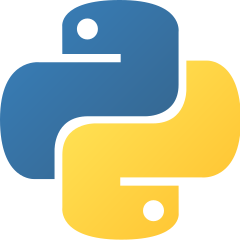
Python has become one of the most popular programming languages in scientific computing. It is high level enough that learning it is easy, and coding with it is significantly faster than other programming languages. However, the performance of pure Python programs is often suboptimal which might hinder your research. This course will demonstrate some ways to identify performance bottlenecks, improve slow blocks of code, and how to extend Python with compiled code. You'll learn various ways to optimise and parallelise Python programs, particularly in the context of scientific and high performance computing.
Knowledge Prerequisites: know what classes and functions are, familiarity with Jupyter Notebook, basic console use; and comfortable with Python software carpentry material.
Live classes will take place on Mon., Oct. 17, Wed., Oct. 19, Thurs., Oct. 20 and Mon., Oct. 24 from 4pm-5pm. Recordings and exercises will be also available for self paced learning.
- Teacher: Tyler Collins
- Teacher: Pawel Pomorski
